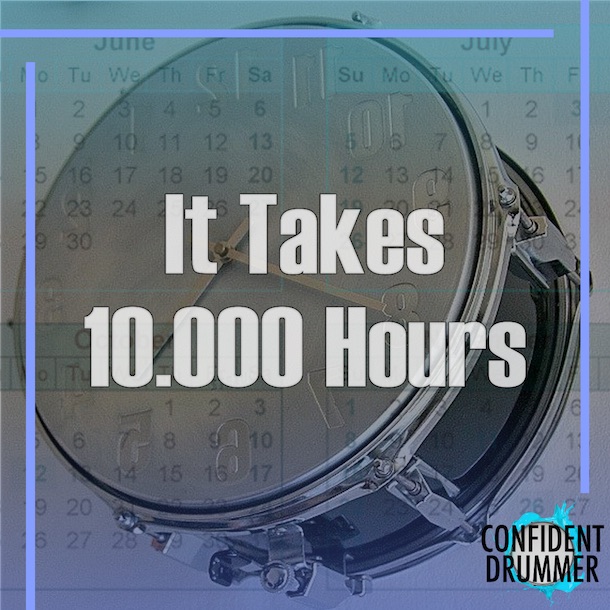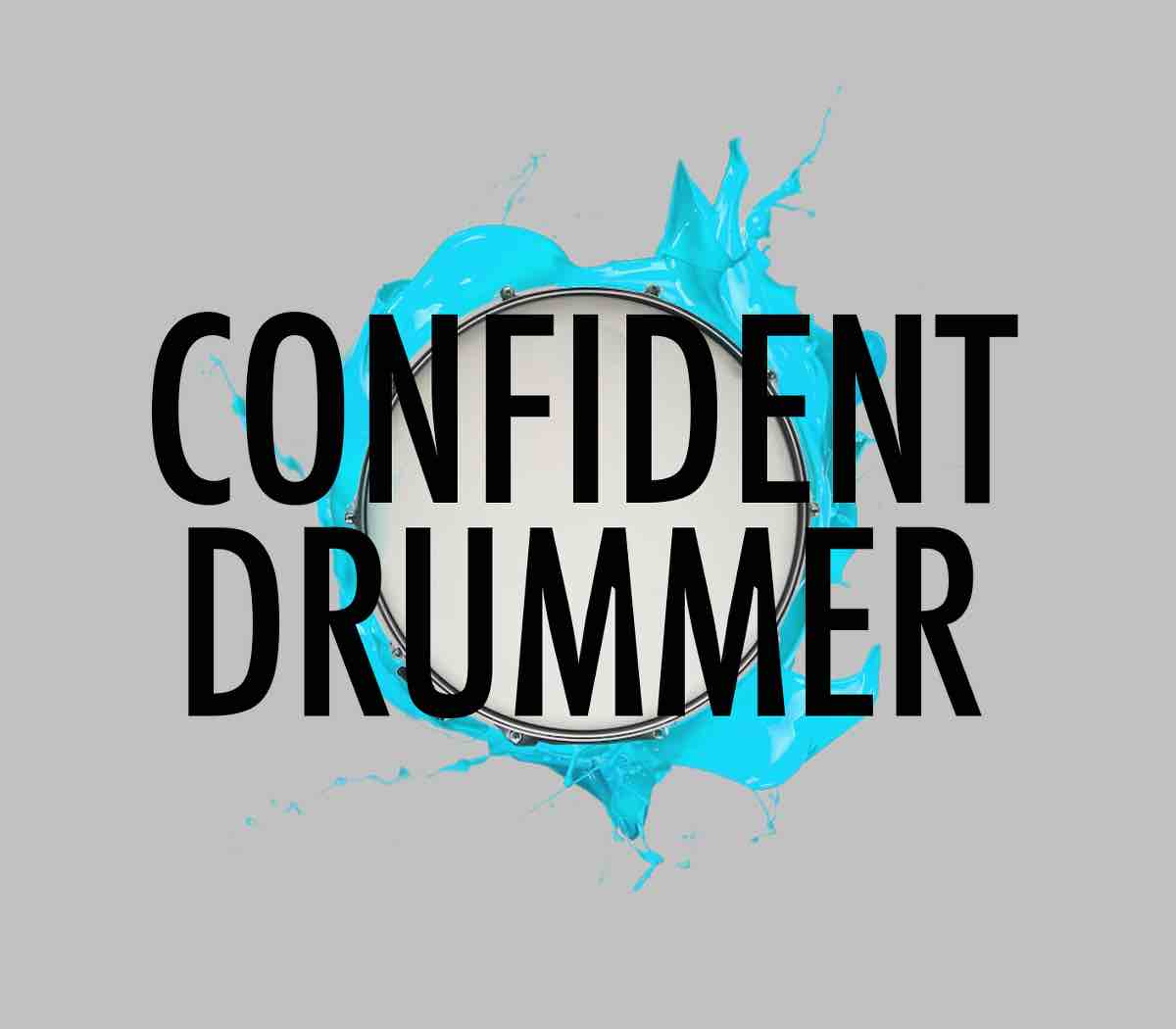This has become a very popular concept in recent years. It basically says that we need to practice for at least 10.000 hours to become proficient in any discipline we want to master.
It has been discovered that that’s the average amount of time investment that musicians, athletes, scientists, engineers, cooks, doctors, airline pilots – you name it – need in order to become experts at what they do.
In our case we have to consider many aspects, because it’s all relative, since we are talking about making art. If you play paid gigs you are a pro and if you create music you are an artist, no matter how many practice hours you have under your belt. And also, what does it mean to be great? Can we all agree about that? That’s a long discussion, and we’ll talk about it in other articles.
For now, this simple rule is very useful to give us a reference, a model, that I think teaches us some very valuable things.
For instance that the distorted message our culture tends to promote, that we can all become amazing in no time and with no effort (you know, the whole ‘talent show’ philosophy), is completely false and has terrible repercussions on the way many people, especially newbies, approach learning and playing music.
Also, the fact that talent is overrated, and is nothing more than a starting point, something that gives us some advantages, but is definitely not the determining factor between making it or breaking it, as the stereotype tells us. Talent is largely a myth, and consistent practice in the long term has more weight than any innate gift drummers have when they start.
But the main lesson that this principle teaches us is that it’s not the years that we have been playing that make the difference. It’s the hours. Of course then it’s a matter of quality and not quantity. Some people learn faster and can focus more (these are two element of real talent by the way), some have better teachers, or use more effective methods, and so there are definitely many additional variables.
But the thing is, this rule helps us keep our eyes on something really useful: unless we put in the hours, day in and day out, we won’t become great players.
Just to get an idea of the relevance of this, let me break down the maths for you. How long does it take to log ten thousand hours? If we practice one hour every day… well, I hate to break it to you: it takes 27 years… yeah, I know 🙂
3 hours a day and it takes ‘only’ 10 years. It’s the proverbial 10 years it supposedly takes to learn to play a musical instrument.
Now we know that it’s true, but only if we study for 3 hours every day! Lastly, if we work our butts off with 10 hours a day we can do it in 3 years.

There was a tendency among some drummers, a few years ago, to almost brag about how little time they devoted to practicing. Saying things like ‘I never practice’ was like saying ‘I don’t need to practice to be good’.
That’s misleading because whoever says that at the very least spent lots of time onstage or in a studio making music with others. And yes, those hours count as practice.
Never practicing yet being good does not exist in real life, especially with a physically demanding instrument like the drums. Our muscle memory goes away pretty quickly if we don’t work on it for prolonged periods of time, developing it, building it and then regularly maintaining it. Furthermore, besides keeping our technique in shape, there are all other aspects of playing, style, concepts, musicality, feel, experimentation.
Let me tell you: all great players practiced like crazy, and still do. Sure, if you started playing as a kid you have such ingrained muscle memory that it takes less time to do maintenance, but you stil need to do it, and also whoever started at a very young age has easily spent more than 10.000 hours holding a pair of sticks just before becoming an adult.
All great masters we see around have put together tens of thousands of hours of practice time, and they likely devoted a part of their life to doing nothing but playing the drums.
Ultimately, even though they seem like a lot of time, those 10.000 hours are actually a starting point and not a finish line. Personally I’ve invested about 20.000 hours over almost 3 decades and I don’t feel anywhere near being as good as I would like to.
Let me make this clear: this is not meant to communicate that we have to struggle to sound good, and that practicing is a pain. It’s just to point out that, like for anything else, unless we take action, nothing can happen, no matter how predisposed we are and how much we enjoy music.
Bottom line: if you are in your formative years, put in place the constructive, essential habit of practicing every day, for at least 3 hours, or you are never going to get to those numbers. Take maybe one day off a week. That’s how to make sure you grow as a musician and are ready when there is an opportunity.
Generally speaking, this concept is also related to the idea of mastery, which is one of the keys to living a great life. Put simply, pick at least one thing you love and commit to mastering it. There are not that many ways to achieve the level of lasting fulfilment that being great at something gives us.
The secret to reach any result is in your daily routine. It’s what you do every single day, for years. But to do it every day you can’t just rely on discipline, or even motivation.
You must have a sense of mission, a strong why, a deep love for what you do, because if you only rely on discipline and self imposed practice, it is not sustainable in the long term.
To have a strong sense of purpose you need to figure out your why, your values, what deeply moves you. Ask yourself: ‘What is the most meaningful thing to me in life, and how does playing drums relate to that?’. When you can clearly answer this question then 10.000 hours will seem like nothing.
Related resources:
How To Build An Effective Practice Routine – The Ultimate Guide To Practicing Drums
The Learning Curve
The Four Parts Of Drumming – A New Understanding To Help You Improve Faster
10 Ways to Overcome your Insecurities
‘Actualized Drummer – Paths To Reach Your Full Potential’


















